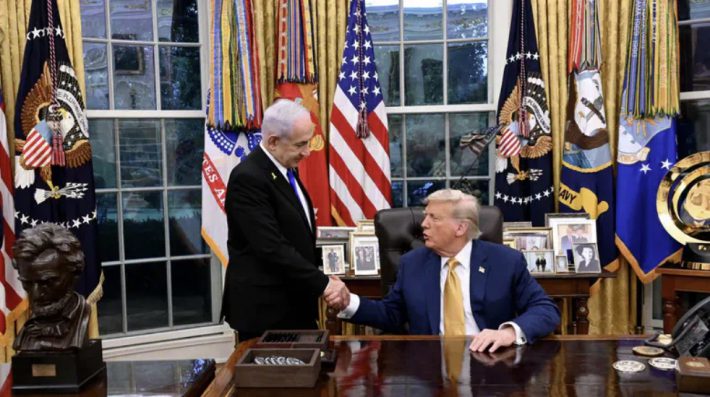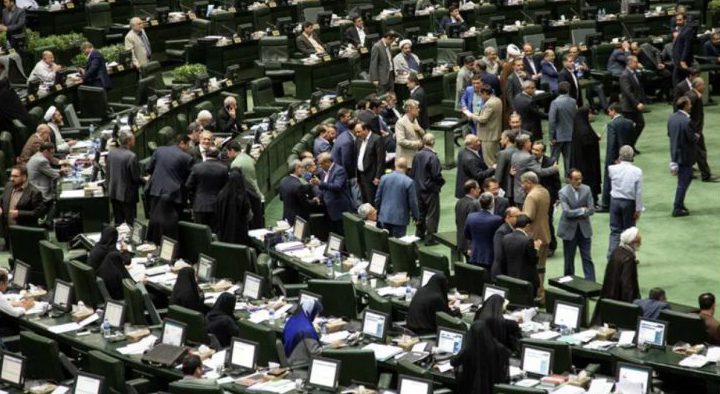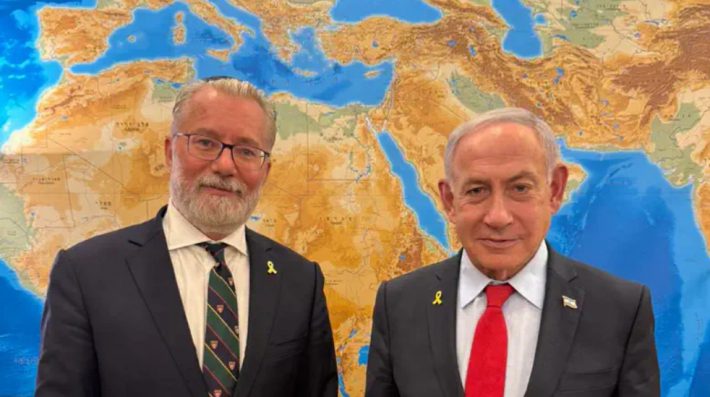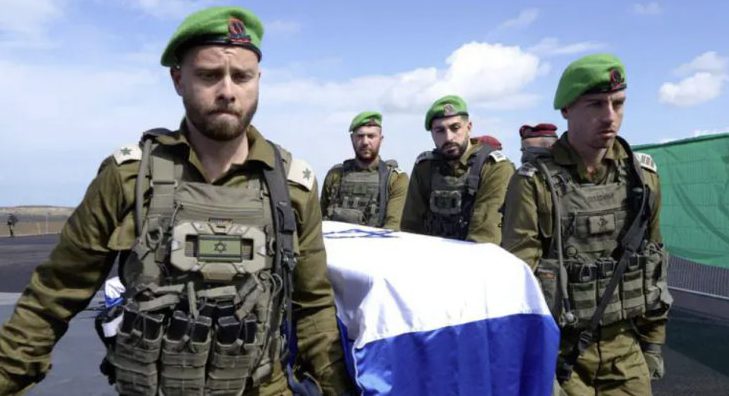Netanyahu Departs Washington, Touts Progress in Hostage Negotiations and Renewed Hope in Gaza
Prime Minister Benjamin Netanyahu concluded his four-day visit to Washington on Thursday night, departing aboard the “Wing of Zion” following two meetings with U.S. President Donald Trump at the White House. The Prime Minister’s Office later affirmed that “all the goals Netanyahu sought to achieve during the visit were accomplished.”
In a candid interview with Newsmax before his departure, Netanyahu conveyed cautious optimism over the potential release of more Israeli hostages held by Hamas since the October 7, 2023 massacre.
Describing the ordeal faced by the 255 hostages as “hell,” Netanyahu did not mince words in characterizing Hamas: “They’re monsters. I mean what they do to them and the stories we get are horrible. So it’s not easy for us when we’re doing it.”
He confirmed that 50 hostages remain, with 20 confirmed alive, and around 30 presumed deceased. Netanyahu revealed that negotiations are focused on securing the release of half of the living and half of the deceased, as part of a 60-day ceasefire arrangement, with a clear goal to retrieve the remaining hostages thereafter.
“We now have a deal that supposedly we’ll get half of the living and half of the dead out,” he said. “And so we’ll have 10 living left and about 12 deceased hostages. But I’ll get them out, too. I hope we can complete in a few days.”
The plan reportedly envisions a temporary ceasefire during which initial hostages would be released, followed by further talks toward a permanent cessation—contingent upon Hamas laying down its arms. “The war could end tomorrow if Hamas lays down its weapons,” Netanyahu stated.
Beyond the hostage crisis, Netanyahu highlighted the broader moral and humanitarian tragedy caused by Hamas’s entrenched rule in Gaza. He accused the terrorist group of deliberately using Palestinian civilians as human shields, thwarting Israeli efforts to protect non-combatants.
“Hamas says, ‘You try to leave the war zone, we’ll shoot you.’ And they shoot them because they want the pictures of dead civilians that they are causing put on Israel’s head,” he said. “On TikTok and social media, you get: ‘Israel is deliberately killing civilians.’ No—we’re not. Hamas is.”
In a revealing shift, Netanyahu spoke of unprecedented defiance by Gazan civilians against Hamas. “We see something that never happened before—Palestinians in Gaza are fighting Hamas. Palestinians in Gaza are defying Hamas. Palestinians in Gaza are saying, ‘We don’t want them,’” he said.
He framed this grassroots pushback as a critical turning point. “Because we weaken them to this point,” he added, “we think we can bring it to completion.”
Netanyahu closed with a message of unwavering determination and hope:
Prime Minister Benjamin Netanyahu concluded his four-day visit to Washington on Thursday night, departing aboard the “Wing of Zion” following two meetings with U.S. President Donald Trump at the White House. The Prime Minister’s Office later affirmed that “all the goals Netanyahu sought to achieve during the visit were accomplished.”
In a candid interview with Newsmax before his departure, Netanyahu conveyed cautious optimism over the potential release of more Israeli hostages held by Hamas since the October 7, 2023 massacre.
Describing the ordeal faced by the 255 hostages as “hell,” Netanyahu did not mince words in characterizing Hamas: “They’re monsters. I mean what they do to them and the stories we get are horrible. So it’s not easy for us when we’re doing it.”
He confirmed that 50 hostages remain, with 20 confirmed alive, and around 30 presumed deceased. Netanyahu revealed that negotiations are focused on securing the release of half of the living and half of the deceased, as part of a 60-day ceasefire arrangement, with a clear goal to retrieve the remaining hostages thereafter.
“We now have a deal that supposedly we’ll get half of the living and half of the dead out,” he said. “And so we’ll have 10 living left and about 12 deceased hostages. But I’ll get them out, too. I hope we can complete in a few days.”
The plan reportedly envisions a temporary ceasefire during which initial hostages would be released, followed by further talks toward a permanent cessation—contingent upon Hamas laying down its arms. “The war could end tomorrow if Hamas lays down its weapons,” Netanyahu stated.
Beyond the hostage crisis, Netanyahu highlighted the broader moral and humanitarian tragedy caused by Hamas’s entrenched rule in Gaza. He accused the terrorist group of deliberately using Palestinian civilians as human shields, thwarting Israeli efforts to protect non-combatants.
“Hamas says, ‘You try to leave the war zone, we’ll shoot you.’ And they shoot them because they want the pictures of dead civilians that they are causing put on Israel’s head,” he said. “On TikTok and social media, you get: ‘Israel is deliberately killing civilians.’ No—we’re not. Hamas is.”
In a revealing shift, Netanyahu spoke of unprecedented defiance by Gazan civilians against Hamas. “We see something that never happened before—Palestinians in Gaza are fighting Hamas. Palestinians in Gaza are defying Hamas. Palestinians in Gaza are saying, ‘We don’t want them,’” he said.
He framed this grassroots pushback as a critical turning point. “Because we weaken them to this point,” he added, “we think we can bring it to completion.”
Netanyahu closed with a message of unwavering determination and hope:
“We’re going to defeat these monsters and get our hostages back. That didn’t happen before. But it’s happening now.”





